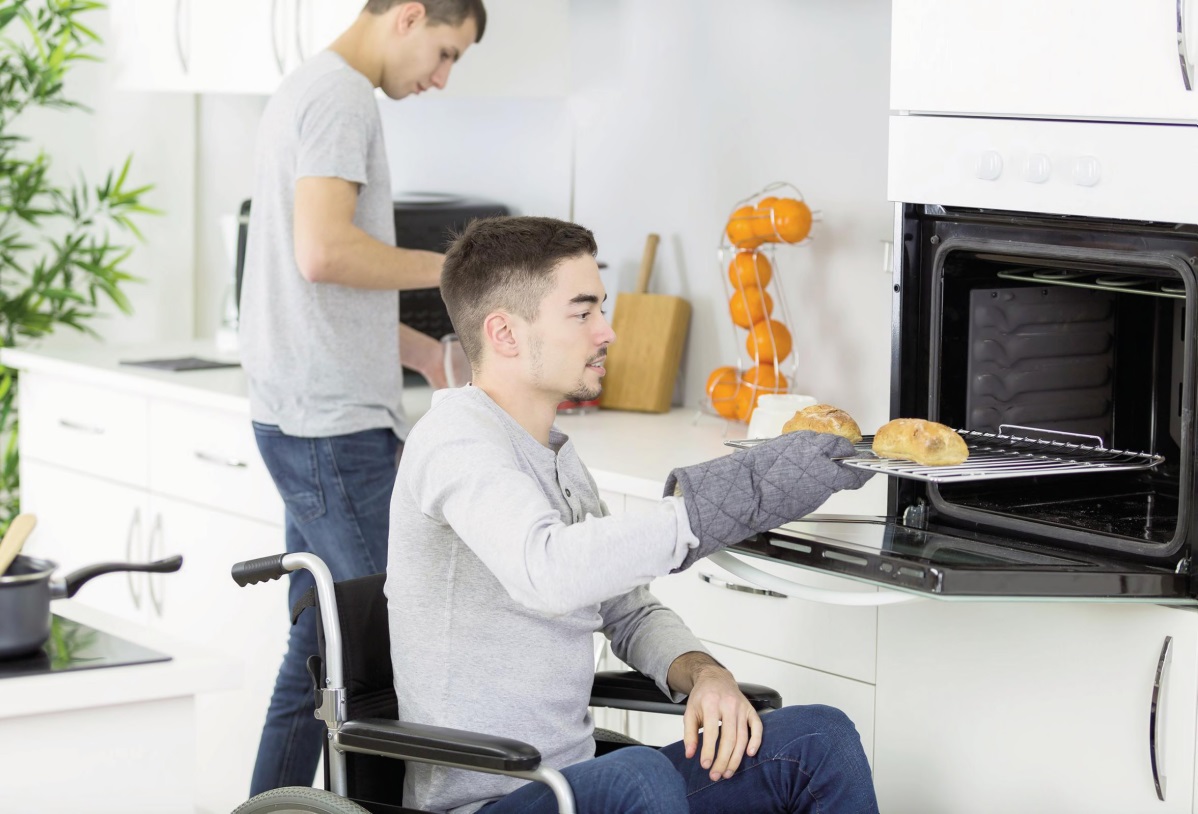
RECIPE FOR SUCCESS: Once you've decided to hire a home accessibility specialized architect, ask him/her to prepare an American Institute of Architects (AIA) developed professional services contract for review and execution. This contract details both your responsibilities and the architect's responsibilities.
WHERE TO BEGIN
- Understand ADA: "The ADA'90 is a civil legislation with intent, goals and purpose that form the basis of broadbased accessibility in the American Society. It does not apply to private homes."
- Go beyond ADA: The concept of "accessibility for all" is called "universal design" (UD), meaning the principles of UD facilitate creating an enabling live/learn/work/play environment for all. Above all, with every situation being unique, consider an additional layer of accessibility i.e., evidence-based design, to customize what works for you.
- Engage a home accessibility specialist: A licensed architect with know-how and experience in home accessibility from design and construction viewpoints. It is important to remember that every
situation is different, yet accessibility design solutions should include family members irrespective of age/abilities. Note: A general practice architect is familiar with ADA accessibility compliance issues applicable to various building other than private homes
- 4. Information Sharing: Working with a home accessibility "architect" means openly sharing information about disability issues in the family. Your
discussion within family may include the following: preference for pocket doors, lever faucets, toggle light switches, clear knee space under the counter tops, motion/occupancy sensors, keyless entry, intelligent thermostats and more.
This helps the architect to better understand your situation in terms of concerns/priorities, preferences, and aesthetics for designing accessibility solutions.
An architect experienced in home accessibility can be just the right resource to help you and your family live comfortably in the home of your dreams.
WHAT TO CONSIDER WHEN HIRING AN ARCHITECT
During the initial consultation with an architect, you will get the chance to learn about the architect's design philosophy and style. It's a perfect opportunity to ask questions and talk about your ideas. You'll need to discuss fees, timelines, and expectations etc.